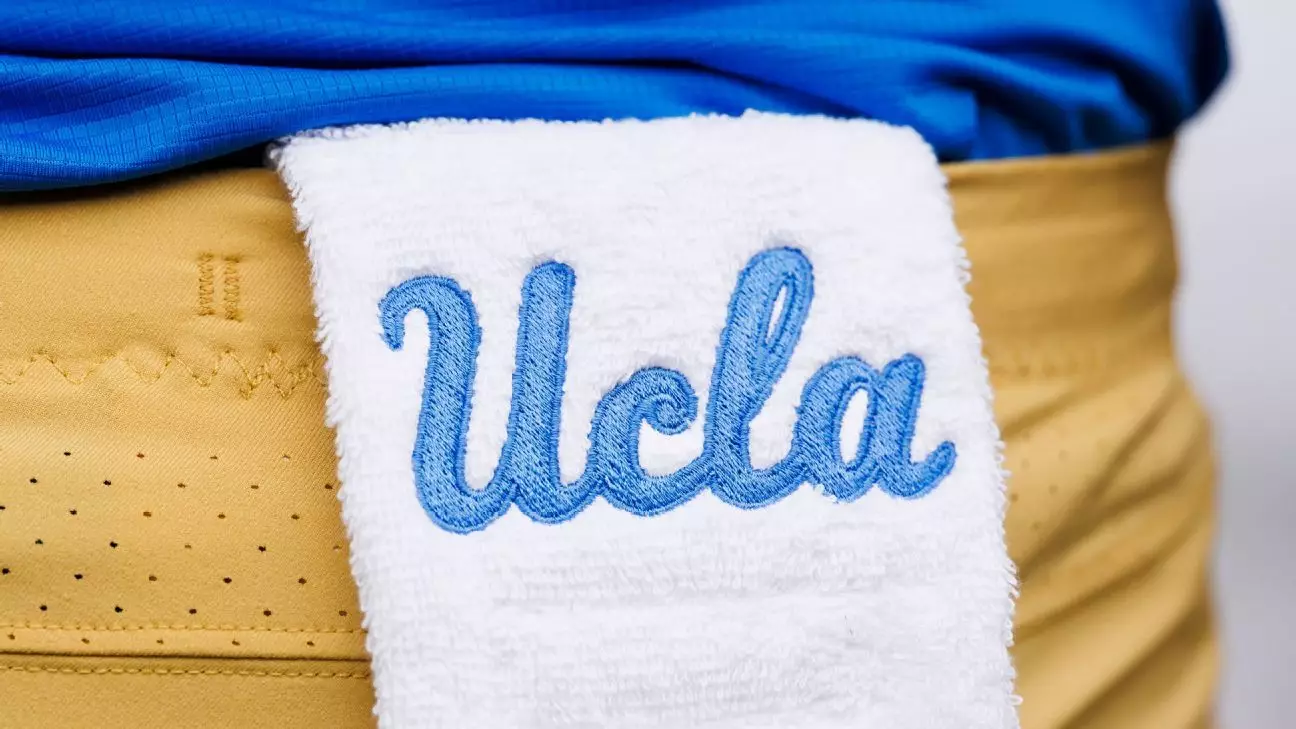In a stunning turn of events within college football, Madden Iamaleava, the promising young quarterback and younger brother of Nico Iamaleava, has decided to leave the Arkansas Razorbacks to join his brother at UCLA. This anticipated shift, confirmed by multiple sources, comes just one day after Nico’s own transfer commitment to the Bruins. Such dynamics within a family can significantly influence athletic trajectories, and this case illustrates how intertwined personal and professional decisions can be. It raises an essential question: Can familiar bonds enhance individual performance in such a competitive environment?
The decision for Madden to enter the NCAA transfer portal is hardly unexpected, given the swirling rumors around college athlete mobility and sibling dynamics. The concept of “brotherly support” extends beyond personal life, impacting how players adapt and thrive in their new surroundings. However, it’s crucial to analyze whether this transfer is genuinely beneficial for Madden or simply a reaction to familial pressure and the allure of following in his brother’s footsteps.
Recruiting High Stakes and Decision Making
Ranked as ESPN’s No. 145 overall recruit for the 2025 class and the No. 12 pocket passer, Madden’s potential is not in question. His previous commitment to UCLA, followed by a dramatic last-minute switch to Arkansas, had marked him as a coveted asset in college football’s frenzied recruiting landscape. Coach Sam Pittman’s brief time with him offers insights into how recruiting decisions can shape not only athletic careers but the fate of entire programs.
However, the constant shuffling of players undermines the stability of college programs. One must ponder whether this trend is a reflection of dissatisfaction with coaching decisions, environmental fit, or simply the stark realization that personal paths often do not mirror familial expectations. As a program, UCLA could significantly benefit from having two Iamaleava brothers, potentially transforming their offensive strategy. But is Shane Foster ready to absorb this immense pressure and deliver on the high expectations?
The Broader Picture of NCAA Transfers
This transfer isn’t an isolated incident; it reflects a larger phenomenon occurring across the NCAA landscape where players are increasingly using the transfer portal as a strategic advantage. The youthful allure of joining a familiar system often overshadows the challenges involved, such as adjustment to a new coaching style, competition, and the emotional toll of change. For every promise of a fresh start, there lies inherent risk.
Moreover, the competitive environment raises ethical questions surrounding player loyalty and institutional commitment. Are students merely pawns in a hungry system driven by success at any cost? As enthusiasts of college football, we should exhort programs and players to form deeper connections rather than transient relationships centered on immediate opportunities.
In essence, while the allure of familial cooperation shines brightly, it also casts a shadow over the intrinsic values embedded in college sports. Institutions must reflect on their roles in nurturing not only talent but identity and emotional resilience among their athletes. The story of the Iamaleava brothers serves not just as a tale of transitions but also as a mirror reflecting the evolving landscape of college athletics in America.

Leave a Reply